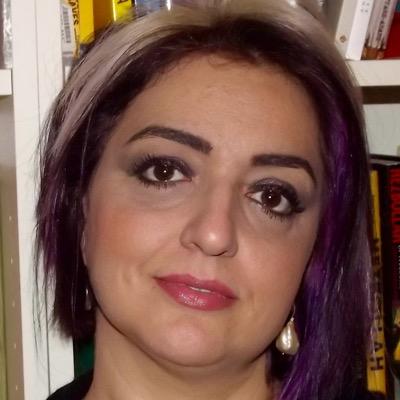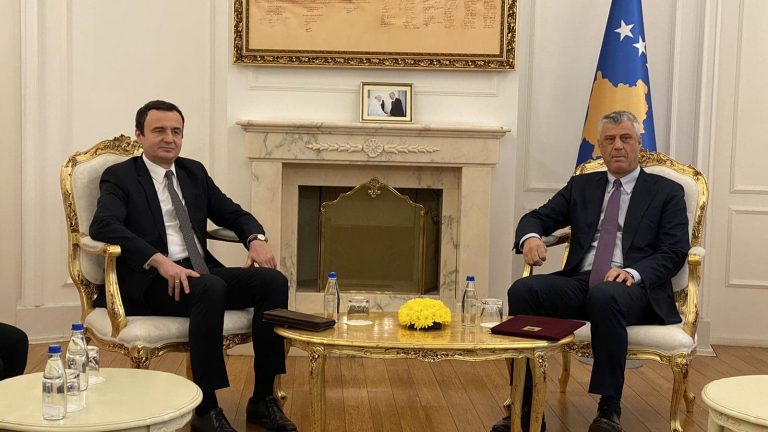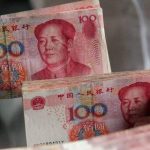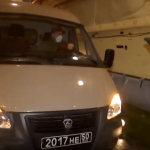The government fell in Kosovo in the face of the pandemic emergency on March 25, after only 52 days of work since last year’s November elections. To make it fall down the motion of no confidence presented by one of the parties (LDK) of the same coalition government.
After years of corrupt governments the election of Albin Kurti as PM (leader of the left wing Party –VV) had awakened the hopes of the voters. The apparent reason for the fall of the government was the premier’s decision on the lockdown measures in COVID times, immediately thwarted by the President Thaci (member of the opposition party -PDK), declaring the need for the proclamation of the State of Emergency before embarking on any measure. In fact, the Constitutional Court in Kosovo declared Kurti’s measures unconstitutional. The Parliament must declare a State of Emergency before approving restrictions on free movement.

Immediately after the confrontation with President Thaci, Prime Minister Kurti fired the Minister of Internal Affairs and Public Administration member of the LDK Party, who supported President Thaci’s decision. By doing this, the Premier knew perfectly well that the LDK leader Isa Mustafa would not get over it and that this would have broken the coalition’s fragile balance. Hence, Mustafa’s request for a motion of no confidence towards the PM. While the various European Ambassadors have appealed “…to preserve and ensure the integrity and functionality of Kosovo’s government…”, the US Ambassador in Kosovo declared a day before the motion “… it is important for the Assembly and all Kosovo institutions to respect the Constitution”.

The two sides attacked each other going further. Premier Kurti accused President Thaci that behind his request there is a possible agreement between him and the Serbian President Vucic for a territory swap with the approval of the USA, thus referring to their meeting on March 3 in the USA. The US Special Envoy Richard Grenell said in an interview with a Kosovar broadcaster that he had not seen any secret plans being discussed and that he himself opposes the idea of changing boundaries. The only evident interest expressed by the US is that of tariffs on goods exported from Serbia and Bosnia.

Kosovo declared independence in 2008 with the leadership of the United States and the support of the other European powers and it has long been heavily dependent on Washington on its international integration path. The EU and the US have almost always been united on this course of action. Even the negotiation process in Brussels, as well as the dialogue process with Serbia, have also been supported by the US. However, it is precisely during this last process that the first divergences between the EU and the US will arise. Talks, facilitated by the EU on the normalization of diplomatic relations between Kosovo and Serbia started in 2011 and were derailed in November 2018, due to the introductions of 100% tariffs on Serbian goods and services imposed by the former PM Haradinaj in retaliation for Serbian pressure against Kosovo’s membership in Interpol and Belgrade’s continued pressure to many countries to cancel their recognition of Kosovo. The introduction of tariffs has long been the subject of debate. Tensions grew with the arrival of John Bolton as President Donald Trump’s National Security adviser who has always been against Kosovo’s independence and the administration’s apparent willingness to consider the division – long favored by Serbia – as a possible solution. Bolton’s arrival has encouraged the Serbian government which sees border changes as the best way out from the Kosovo issue stalemate. Belgrade has tried to convince Russia to express its support for the idea of trying to sell to Kremlin the idea that such a solution could facilitate a rapprochement between Russia and the USA. But nothing suggests that Kremlin could be in favor of the situation given that a continuous tension is in his interest in maintaining influence in the area and in making Serbia’s rapprochement with the EU more complicated.
After the 2019 elections in Kosovo, Matthew Palmer and Richard Grenell, special envoys of the US in the Western Balkans and respectively for the Serbia-Kosovo negotiations, asked for Kurti’s commitment to abolish tariffs. On February of this year Kurti told in a news conference that “tariffs in place for all other Serbian goods will be eliminated on April 1 for a period of 90 days if Belgrade halts its campaign of prodding other countries not to recognize Kosovo’s statehood and removes trade barriers for Kosovo”. While there have been no harsh stances from Europe, the statement was by no means welcome by the US. Immediately afterward, the United States interrupted the $ 50 million of economic aid assigned to Kosovo and threatened to withdraw US troops from Kosovo unless they did concessions, through statements made by American senators and Donald Trump’s own son.

Early elections in a time of pandemic are most likely far away. The Kosovar constitution itself does not allow for power gaps, so Kurti will certainly remain as a PM caretaker for some time and most likely convinced that he will emerge stronger from such a crisis. As we have often seen in history although, the applause on the street and the fans of social networks are not necessarily translated into votes. In his favor, he is facing the same corrupted political class that has tired and disappointed the Kosovars in all these years, but will do everything possible to maintain the status quo.Regardless of Thaci’s personal interests in his support for the USA, in recent years he has learned how to act in politics and the importance of alliances for a small State. Kosovo absolutely needs to sit down at the negotiating table.If Kosovo decides to stay out of formal relations with its allies, but above all with its main ally – the USA, it risks being left alone or even abandoned. In terms of national security, this is a dilemma that the country cannot afford, especially after the disappointments caused by the EU, regarding visa liberalization and negotiations with the EU. In the end, the tariffs imposed did not produce any result from the diplomatic point of view, they had insignificant economic damage to Serbia and the presence of smuggled goods has increased on Kosovo’s market. An alliance can limit the diplomatic freedom of a small country, but it may also serve economic, political, or strategic interests. This is a lesson learned from Thaci, but still to be digested by Kurti.
Author
-

Researcher on International Relations Middle East and Balkans
View all posts
CSSII- Centro Interdipartimentale di Studi Strategici, Internazionali e Imprenditoriali,
Università di Firenze, Italy, Albania




